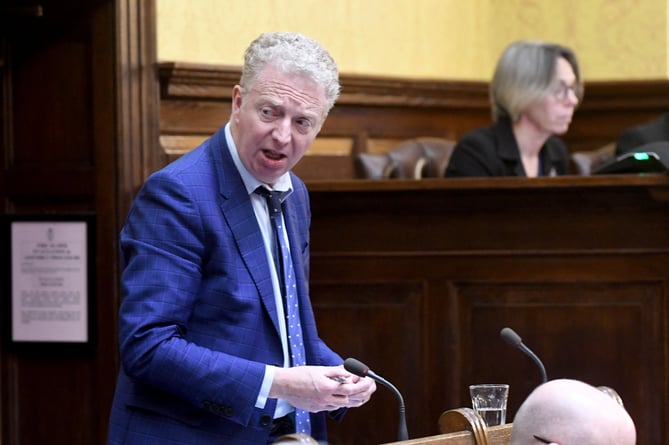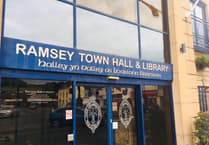Members of the Chamber of Commerce have overwhelmingly declared a vote of no confidence in the government’s Budget.
The board of the island’s biggest business network has written to Treasury Minister Dr Alex Allinson calling for ‘urgent and decisive action’ to restore stability, confidence and optimism by re-establishing ‘real fiscal responsibility across Ministers and departments’.
It wrote: ‘In a nutshell, the overwhelming feeling of our members is that last week’s Budget was bad for business, employees, and demoralising for business owners. The island urgently needs a Treasury Minister and team that understands business.’
The Chamber of Commerce represents businesses which between them employ some 22,000 staff across all sizes and sectors of the Manx economy.
‘Bleak’ results of a survey conducted across all sectors of the membership at the end of last week found that 98% said the Budget won’t help their business and 96% said it won’t help their employees – and 95% said that tax rises should have been matched with corresponding savings in government expenditure.
More than half of employers said they didn’t believe the childcare support in the Budget will help their staff.
The letter to Dr Allinson said: ‘Chambers members have overwhelmingly declared a vote of no confidence in the 2024 budget. We need to turn this around, urgently.
‘To fund public services on Isle of Man we need positive, motivated, and investing businesses and employees.’
It said that some survey comments expressed a lack of desire to either move here or stay here, citing a post-Budget erosion of our competitive advantages.
There was also surprise that a long-awaited tax strategy appeared far from being progressive and visionary.
A 2% increase in the upper rate of income tax, with the extra income it raises ringfenced to fund healthcare, was the headline measure announced in last week’s Budget.
‘We are seeking urgent action to re-establish stability, confidence, and optimism for businesses,’ said the Chamber board in its letter.
It called on responsibility for the economy to be clearly defined via a strategic board of public and private sector members with a Minister reporting through to CoMin.
‘In the meantime,’ it added, ‘the island urgently needs a Treasury Minister and team that understands business, our economy, and its structure, when taking decisions that affect future growth, government spending, investment, and the island’s competitive advantages.’
The Chamber said the size, cost and scope of government needs tackling urgently, and Ministers and departments must be financially responsible and accountable with mandatory oversight on spending – prioritising essential and core services, taking a ‘back to basics’ approach, while improving ‘agility, productivity, and service’.
‘These bleak survey results underline a strong and prevalent conviction amongst our members that government has become overly large and financially burdensome and in many “non-frontline” areas savings could be made.
‘We cannot continue to compromise our economic strengths and competitive position to accommodate these expenditures, especially on non-essential services.’
It added: ‘There is a perception that government is light on those that understand business and more importantly the impact of the rapid pace of change and transformation being driven by external market forces currently.’
The Treasury Minister was quizzed by a Tynwald scrutiny committee this week about what was being done to reduce the government headcount, which has grown by almost 740 since 2016, an increase described as ‘excessive’ by Douglas North MHK John Wannenburgh.
But Dr Allinson told the economic policy review committee: ‘Is it excessive to employ more nurses, more doctors, more teachers? You need to be careful before you start arbitrarily reducing headcount. While it can be tempting sometimes to say we should cut the headcount, the results of that can be quite devastating to individual service deliveries.’
In a response to the Chamber of Commerce, he wrote: ‘I am concerned to receive your open letter and the brief survey of your members. This has been a difficult Budget to deliver and there was naturally going to be concern around a temporary increase in income tax to meet the growing demands on our NHS.
‘From the start of this administration there has been increased collaboration with the private sector. This positive engagement and the use of private sector business expertise will continue.’
He said that in a ‘difficult and uncertain’ economic environment, Budget measures aimed at producing long-term sustainable financing while reducing drawdown of reserves were to the benefit of the community, businesses and economy.
‘Government and all departments are acutely aware of the need to continue to provide vital public services while delivering value for money for the taxpayer,’ he added.




